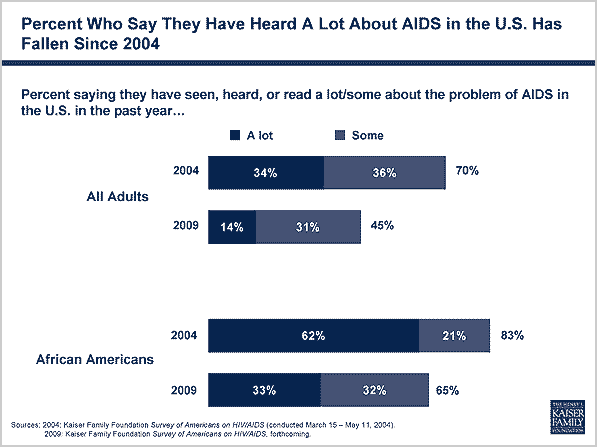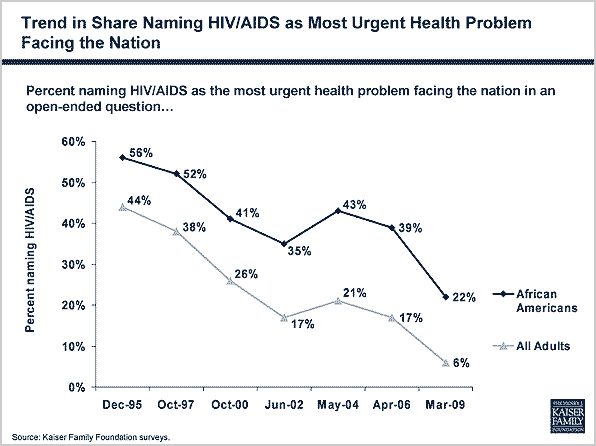Pulling It Together: America Has Gone Quiet on HIV/AIDS
Kaiser has had a focus on HIV/AIDS since we remade the Foundation in the early nineties. It cuts across all of our program activities, from policy analysis, to our large scale media campaigns in the U.S. and around the world, to our web initiatives, to our public opinion research program. We have just completed a major survey of the American people on HIV/AIDS and global health. As new health priorities take shape in Washington, one set of findings deserves early attention while we continue to analyze the overall survey for release.
We found that the percentage of the American people who say that they have seen, heard or read a lot about HIV/AIDS in the U.S. has fallen from 34% five years ago to just 14% today. The percentage of African Americans reporting this has fallen from 62% to 33%.

The dropoff in attention to HIV/AIDS could partly be a response to the current focus on the economy, but related findings suggest it’s a longer term trend. As this next chart shows, the percentage of the overall public and of African Americans naming HIV/AIDS the most urgent health problem facing the nation has declined steadily and has fallen precipitously since 1995.

Today’s relative state of quiet and apparent lessened concern about HIV/AIDS has occurred despite the fact that in August 2008, the CDC announced that the number of new HIV infections each year in the U.S. is 40% higher than we previously thought. The CDC also underscored that our epidemic continues to be concentrated in familiar higher risk communities and groups: gay and bisexual men, African Americans, and teens and young adults.
The media, and in particular the news media, clearly has a role to play in bringing greater attention to the U.S.’s continuing HIV/AIDS epidemic. In our survey 62% of the American people named media as their main source of information on HIV/AIDS. However, while the news media can do more to cover HIV/AIDS, the media, appropriately, follows more than leads when it comes to agenda setting. Its primary job is to report the news, not to set the agenda. The main message here is simple: the CDC says we have a much bigger epidemic than we thought we had at exactly the time when the public is hearing much less about it and seems less concerned. It’s time for renewed national, state, and community leadership if the domestic HIV/AIDS epidemic is to get back on the public agenda.
